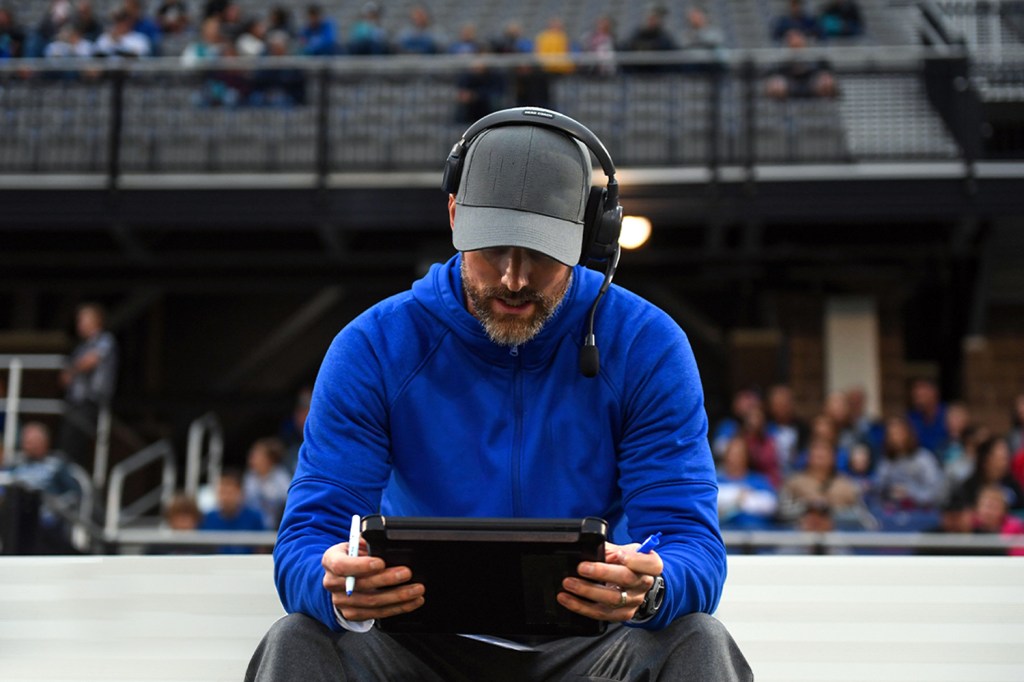Reports This Month
- Scouting Report: The Crypto Market’s Impact on Sports Sponsorships
- Scouting Report: The Power of Short-Form Video
- Heat Check: The Cloud’s Growing Impact on Sports
One Big Thing
The Oakland Athletics have struggled for years to find a new home — inside or outside Oakland. Through the first five-and-a-half weeks of the 2022 season, the A’s are currently last in Major League Baseball in attendance, averaging only 8,421 fans per game — in a stadium that seats 57,000.
Down attendance is nothing unique to Athletics, and the league’s median attendance is down ~2,000 from 2019. And elsewhere in the Bay Area, San Francisco Giants are down ~3,000 attendees from their 2019 figures. But the Athletics are down close to 12,000 a game, by far the biggest differential in the league.
Worse, the struggle to draw fans comes at a time when the team has reached its lowest level of spending on player salaries. The A’s are currently spending $47 million on payroll — the lowest figure for the team in 20 years.
Even more worrisome, the Athletics’ Triple-A affiliate, the Las Vegas Aviators, — have been able to draw more fans than their big-league counterparts. In April, the minor league team was able to draw 33% more fans than the Athletics despite 20% less stadium capacity.
- Oakland Athletics: 3,748
- Las Vegas Aviators: 5,607
All of this stems, in large part, from the stadium itself. Major League Baseball has clearly indicated that Oakland needs an upgrade. In 2021, commissioner Rob Manfred stated, “Both Oakland and Tampa need new facilities. It’s kind of beyond debate at this point. Oakland is probably critical, just in terms of the condition of the ballpark.”
Coupled with the team’s spending habits, onlookers are sure of one thing — change is coming to Oakland. Politics will continue to dictate what the ultimate result will be for the franchise, but here is how things stand.
Spend Down, Prices Up
Although spending on player salaries is down and attendance is bottoming, the Athletics used the 2022 season to increase their ticket prices.
According to the Mercury News, ticket prices have in some cases more than doubled since pre-pandemic 2019 levels. The publication specifically cited that two seats in Section 225 had gone from $2,950 in 2019 to $6,500 this season.
The price hikes are further explored in a piece by The Athletic writers Eno Sarris and Ken Rosethal. They cite various ticket-holders who have experienced anywhere from 50% to 150% increases in the price of their season tickets, while also losing access to in-stadium experiences.
The Howard Terminal
Earlier in May, the Athletics were granted approval by the San Francisco Bay Conservation and Development Commission to build a new waterfront stadium development complex in the Howard Terminal area.
To date, one of the project’s largest adversaries has been the shipping industry — one of the industries most impacted by the lockdowns of the past two years and subsequent supply chain crunch. A consortium of shipping companies has lobbied against the proposed 34,000-seat stadium project, which includes a hotel and residential development, as it would take away valuable square footage at the port.
- About $1 billion will go toward a 35,000-seat ballpark — that’s almost half the capacity of the team’s current home, which seats 63,000.
- The project includes a 400-room hotel, 270,000 square feet of retail space, 3,000 housing units, and around $450 million in community benefits.
While the Terminal is currently the country’s eighth-busiest shipping container hub for imports, the Commission released a preliminary report in early May recommending that the conversion be approved — despite a recent consultant’s report claiming that without Howard Terminal, Oakland could run out of container-handling space around 2050.
If the Athletics want to stay in Oakland, there is still work to be done. The California Department of Toxic Substances Control also needs to grant approval, while final say will go to Alameda County.
Viva Las Vegas
If the Howard Terminal plans fall through, there’s always Sin City. The team has been spending hundreds of thousands of dollars each month looking at relocation options in Las Vegas.
In April, the team had bids on five locations. That list has whittled down to two. While the exact locations of the sites aren’t known, there are two clear paths for the Vegas plan.
According to the Las Vegas Sun, the Athletics are unable to disclose which sites are under consideration, but the goal is to secure land for a possible $1 billion, 30,000-seat ballpark near the resort corridor. Of the two options, one is a lot in which the team would have sole ownership unless it enters a public-private partnership, while the other would be in partnership with a resort operator.
According to the Las Vegas Review Journal, some form of public assistance could be made available to help lure the Athletics to Las Vegas, per Steve Hill, CEO and president of the Las Vegas Convention and Visitors Authority. The assistance would come outside the room tax — the mechanism used to fund some of the $750 million for Allegiant Stadium.
Oakland is not the only team looking for an upgrade. The Buffalo Bills, Tennessee Titans, Los Angeles Angels, and Washing Commanders are all in the process of either upgrading or relocating. The various projects have accelerated conversations around the extent to which tax dollars should subsidize these “economic developments.”
The jury is still out — but Oakland’s ultimate decision on the Howard Terminal stadium project will serve as an indication of how future funding packages for stadiums could look.

